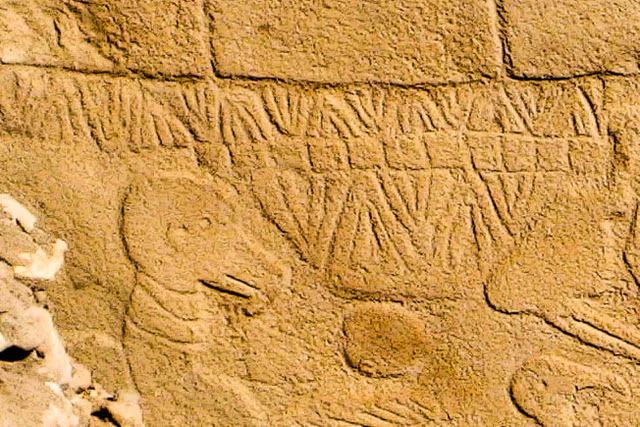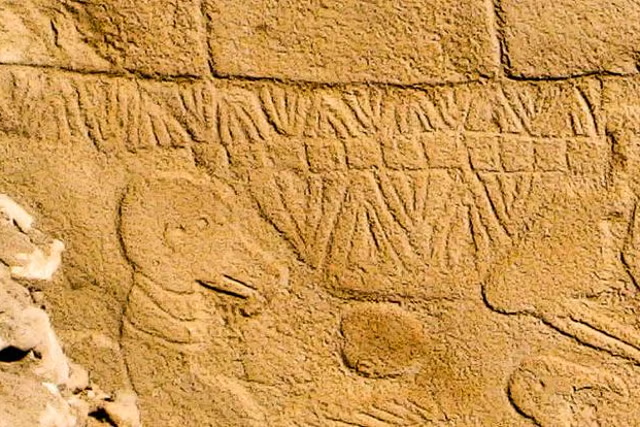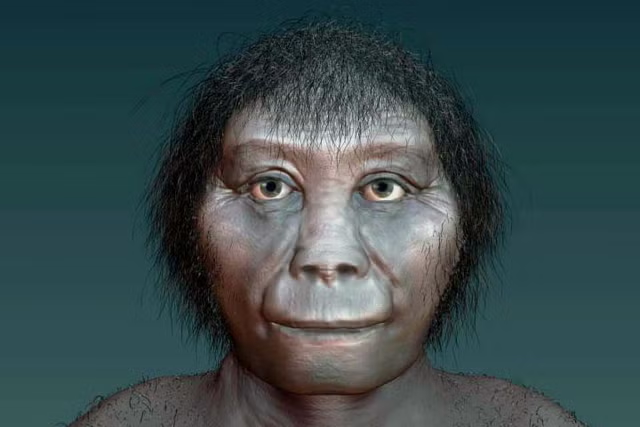Archaeologists have unearthed a remarkable hoard of gold coins thought to be more than 2,000 years old in an ancient Greek city.
The coins—likely dated to the 5th century B.C.—were found buried in a small pot during excavations at the archaeological site of Notion, a Hellenistic city-state located on the west coast of Anatolia in what is now Turkey.
While researchers are unable to reveal how many coins were in the hoard, they constitute a "very significant" sum, Christopher Ratté, an archaeologist with the University of Michigan (UM) and director of the Notion Archaeological Project, told Newsweek.
According to Ratté, the coins feature a depiction of a kneeling archer. This indicates that the hoard is a collection of darics, a form of currency used in the ancient Persian Empire.
Notion was conquered by the Persians in the mid-6th century B.C.—alongside other Greek settlements nearby—but the city was liberated during the Greco-Persian Wars of the early 5th century B.C. In the early 4th century B.C. though, Notion was reincorporated into the Persian Empire. This situation persisted until Alexander the Great, the legendary ruler of the ancient Greek kingdom of Macedon, conquered the Persian Empire in the latter half of the 4th century B.C.
Darics were minted from the late 6th century B.C. until the time of Alexander's conquest, with the design of the coins largely remaining unchanged over this period aside from some minor stylistic differences.
Historical sources indicate that one of the main uses of the daric was to pay mercenary soldiers. While it is not clear how exactly the hoard found in Notion came to be deposited, this fact raises the possibility that the coins may have been linked to some form of military activity involving mercenaries in the region.
"The Greek historian Xenophon tells us that darics were used to pay mercenaries, and this was a common function of early coinage in general," Ratté said. "One coin was a mercenary soldier's salary for a month, so these coins were far too valuable for use in daily commercial transactions. But they were very well suited for payment for soldiers who were constantly on the move.
"That said, the daric was very highly valued as a form of hard currency throughout the Mediterranean region, so other people besides soldiers would also have kept darics as liquid assets."
The gold coin hoard from Notion—which once formed part of an ancient region known as Ionia—was found in the corner of a room in a structure buried beneath a Hellenistic house.
"Presumably, it was stored there for safekeeping and for some reason never recovered," Ratté told UM's The University Record, which first reported the find. "The discovery of such a valuable find in a controlled archaeological excavation is very rare. No one ever buries a hoard of coins, especially precious metal coins, without intending to retrieve it. So only the gravest misfortune can explain the preservation of such a treasure."
Most daric hoards uncovered to date have been found by looters with "no concern for history" rather than archaeologists, according to Ratté.
Unlike many ancient coin hoards that are unearthed, researchers had a significant amount of circumstantial evidence available to them, which indicated the date of its deposition—most likely during the last quarter of the 5th century B.C.
"Obviously these coins are of significant intrinsic value, Ratté told Newsweek. "But the main significance of our discovery is historical. Because the coins were found in a scientific archaeological investigation, we know much more about their context than is usually the case for coins and coin hoards.
"We know exactly where they were found. We know what kind of building they were found in. We know from associated pottery and other artifacts when they were deposited. This information enables us to connect the coin hoard with historical events, such as the effect of the Peloponnesian War on the inhabitants of Ionian cities like Notion."
The Peloponnesian War (431-404 B.C.) was fought between Athens and Sparta—the two leading city-states of ancient Greece—and their respective allies.
Historical sources indicate that Notion existed as a settlement as early as the 6th century B.C., according to Ratté.
"It was a coastal town, occupying a natural fortress—two promontories projecting into the Aegean Sea—overlooking an excellent harbor," the archaeologist said,
The city was especially valuable as a military port—it was used as an Athenian naval base during the Peoloponnesian War, for example.
According to Ratté, the city appears to have had two "peak" periods: one in the late 5th century B.C.—represented by the coin hoard—and one in the Hellenistic period (3rd-1st centuries B.C.).
"The city as it exists today attests that second era of prosperity, when [it] received new fortifications, a new city plan, and a new suite of public buildings, including a theater, bouleuterion (council house), agora and two small temples," Ratté said. "The city was largely abandoned in the early 1st century A.D., not because of natural or man-made disaster, but just because of the lure of the much bigger city of Ephesus nearby."
Do you have a tip on a science story that Newsweek should be covering? Do you have a question about archaeology? Let us know via science@newsweek.com.
Disclaimer: The copyright of this article belongs to the original author. Reposting this article is solely for the purpose of information dissemination and does not constitute any investment advice. If there is any infringement, please contact us immediately. We will make corrections or deletions as necessary. Thank you.



